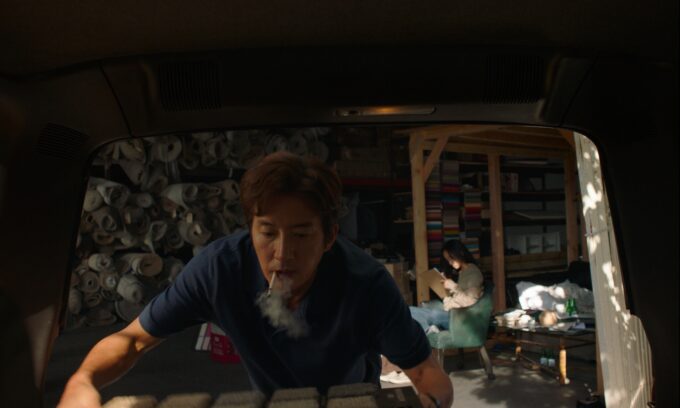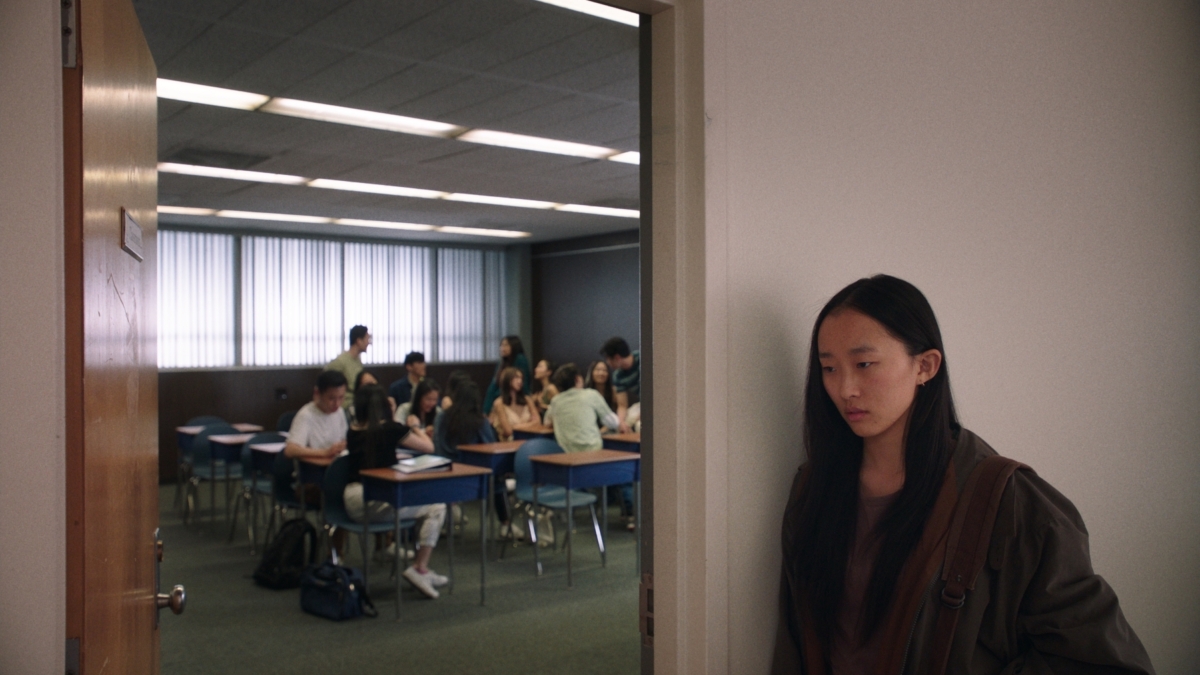A Korean-American teen’s coming of age
“Why do you smoke?” Korean American teen, Hayoung, asks her father. He’s a man whose charisma seems to radiate effortlessly and, at times, makes him feel aloof. “It’s bad for you,” she adds, seamlessly switching from Korean to English. His gaze adverts downwards when Hayoung deflects his joke – “Which bastard told you that?” – and responds, “Literally everyone.” Hayoung has yet to see that the answer to her question is not so easy to convey nor understand.
Before watching So Young Shelly Yo’s “Smoking Tigers,” cigarettes existed in a realm of forbidden curiosity in my mind. I’ve always associated them with the nostalgic image of my great grandfather standing in his townhouse’s small courtyard, a cigarette between his fingers, head hung low. As a kid, I would rest one of my ears on his belly when he was sitting on the couch and let my head rise up and down with each of his strained breaths. It’s an affectionate, however hollow memory filled with questions that will forever be left unanswered – an innocence similar to Hayoung’s in the beginning of the film when she says she likes the smell of cigarette smoke because it reminds her of her father – appa.

Hayoung soon sheds this skin of blissful ignorance and plunges into uncertainty during her 16th summer. Disillusioned by her seemingly dysfunctional family, Hayoung is desperate to stitch up her parents’ broken marriage and escape their modest lower middle class lifestyle, all the while indulging in an alternate identity she creates to assimilate with her wealthy friends from hagwon (essentially “hardcore Korean cram school”).
With the feelings of alienation, teenage angst, and insecurity rooted from her personal experience, Yo tells this coming of age story in a beautifully intimate and vulnerable voice. “There are parts of the film that are remnants of my reality,” Yo said, explaining how fictional narrative and thematic elements allow her to transport the feelings engrained in her memories to her audience.
Suffocated by her eomma’s – mother’s – pragmatism and feeling betrayed by her appa’s empty promises, Hayoung finds deceptive comfort in fantasies about owning a house because she believes it will remedy her family’s fractures – a cultural value deeply rooted into Korean society. She is drawn to the bathtubs at the estates owned by her parents’ respective clients and at the vacant house she sneaks into several times throughout the summer. In direct comparison to these European-design baths are the jjimjilbangs that Hayoung’s eomma brings her and her sister to, where they are forced to strip naked and rub each other’s backs in front of all the women at the bathhouse.
Yet, her vicarious fantasies are fluttering and fragile – poisonous, perhaps. Standing in lavish houses reduces Hayoung to shadows; she becomes a reflection without an entity, for the immense desire to belong to the sophistication she associates with this infrastructure is met with fear and loneliness. As the houses are filled with symbolic items that lend insight into Hayoung’s inner world, Yo intentionally used recurring shots of her reflection. It crafts a visual language that would “tie in all the different elements throughout the film,” Yo explained. Creative compositions like the reflections, as well as elaborately designed lighting for each scene, are Yo’s unique way of capturing the beautiful intricacies and raving turmoil of the human psyche, even when using dialogue sparingly.
Hayoung’s precarious self-worth is further complicated when she gambles her honesty for friendships she believes she would otherwise be undeserving of. She lies to her new friends at hagwon about her family background and helps one of them cheat during tests, while keeping everything under wraps from her parents. Night parties, study sessions, and intimate moments with a boy immerses Hayoung in experiences she’s never been able to grasp, bringing the ideal version of herself to life, but further distancing herself from her family – especially her eomma, whose ideals are a constant reminder of her reality. Unlike her appa, who perceives making mistakes as part of a trial and error process necessary to understand oneself, Eomma lectures Hayoung when she comes home late at night one day, explaining that with only each other to rely on, mistakes are a luxury they can’t afford. The emotions overflow between the minimal words said; the mix of urgency and restrained hesitation in Eomma’s voice, in opposition with Hayoung’s desperate attempt to reject the burden given to her, feels like a punch in the gut.

When the lies that lended her comfort and thrill turn into betrayals, Hayoung has to confront the deceit between herself and the people around her. As she gradually reevaluates what she wants and learns what she already has, Hayoung starts to bear the weight of maturity, and all the bittersweet strength that comes with it.
The film makes a full circle when Hayoung puts on a jacket belonging to her father (who has since moved to Seoul) and later on takes a drag from one of his cigarettes. Yo imbues into these last scenes her memories of her father – a smoker – and how she over time derived an answer to Hayoung’s question from the beginning of the film. “They want to have control over their own death,” Yo said. Cigarettes reflect the “allusion of how the father is so strong and charismatic,” but smoking them in solitude at the end shows that Hayoung now understands that he’s “just a wisp of smoke … a figment of your imagination.” It’s not clear what cigarettes taste like to Hayoung, what she thinks about when she smokes, or even if she’ll continue to smoke at all. She’s grown, and will continue to grow entering adulthood. The world awaits.
“Smoking Tigers” screens at the 47th Asian American International Film Festival on August 4th.

